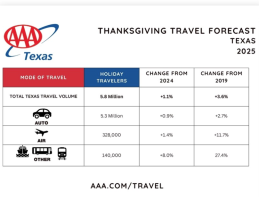URGENT UPDATE: A shocking new report from consumer group Which? reveals that Big Tech is failing to protect consumers from a surge of AI-powered scams, particularly deepfake frauds targeting users on platforms like YouTube. The investigation highlights convincing impersonations of trusted figures such as financial journalist Martin Lewis and UK Prime Minister Keir Starmer, luring audiences into investing in fraudulent schemes that appear government-backed and risk-free.
The alarming findings come as AI impersonation scams have skyrocketed in 2025, making them increasingly difficult to detect. The urgency of this situation is underscored by the fact that approximately 20% of investors trust online influencers when making financial decisions, a statistic that poses a significant risk to unsuspecting users.
Which? is now calling for immediate action from both tech companies and the UK government. They demand stricter regulations to ensure platforms like YouTube, X (formerly Twitter), and Meta take responsibility for blocking misleading content that endangers consumers. The consumer group urges the government to include tough measures in its upcoming fraud strategy to hold Big Tech accountable.
“AI is making it much harder to detect what’s real and what’s not,” stated Rocio Concha, Director of Policy and Advocacy at Which?. “Fraudsters know this—and are exploiting it ruthlessly. All the while, Big Tech platforms that many of us use daily are simply not doing enough to prevent scammers from operating on their sites, putting their users at risk.”
The Financial Conduct Authority has issued general warnings against trusting unchecked financial influencers. However, the emergence of deepfakes complicates the landscape, as fraudsters create realistic fakes of reliable sources, making it crucial for viewers to verify content through official channels.
In response, YouTube has introduced a tool allowing creators to flag AI-generated video clones, a step towards combating deepfake content. However, this measure does not specifically target deepfake financial fraud, leaving consumers vulnerable.
As the threat of AI scams continues to rise, it is imperative for internet users to exercise caution. Verify the legitimacy of investment advice and check for safe links to avoid falling victim to these high-tech scams.
The Which? report serves as a critical reminder that without proactive measures from tech giants and government action, consumers may remain at risk in this evolving digital landscape. Authorities must act swiftly to implement stringent regulations that can effectively protect individuals from these sophisticated frauds.
Stay informed and vigilant as this situation develops. The fight against AI scams is far from over, and the responsibility lies with both companies and consumers to ensure safety online.







